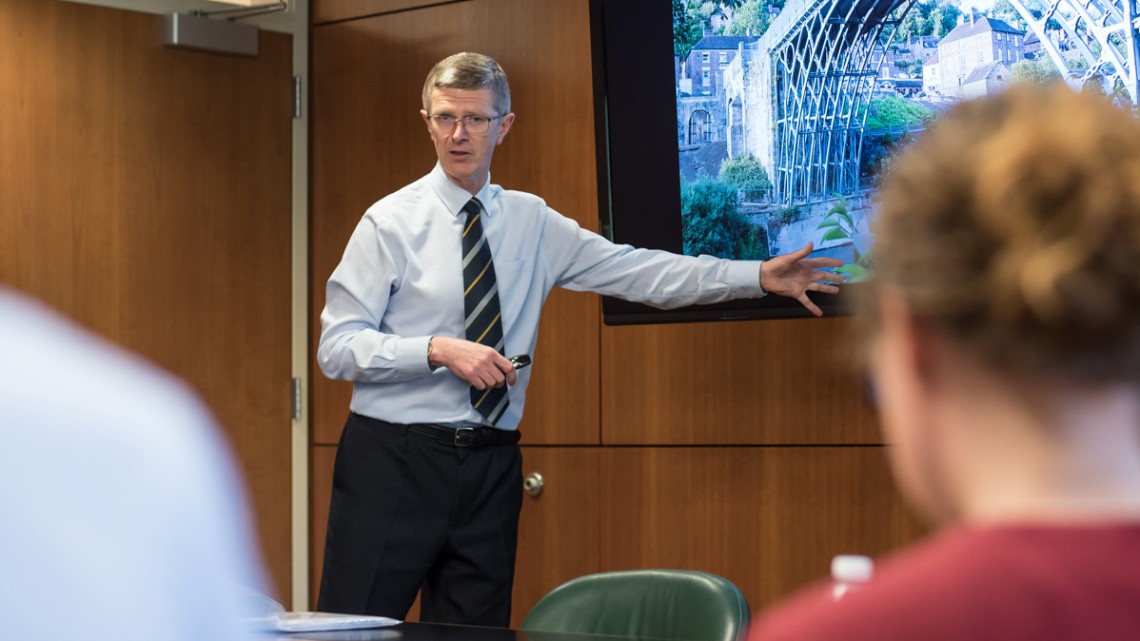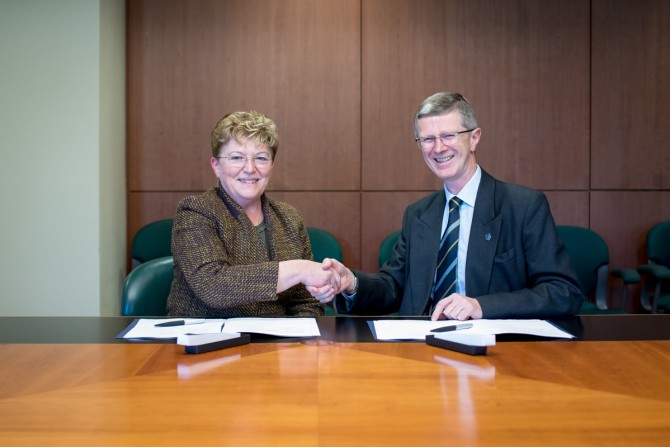
David Llewellyn, vice chancellor of Harper Adams University, spoke about the challenges facing universities in the United Kingdom after British voters decided to leave the European Union.
Higher education in the UK faces challenges post-Brexit
By Melanie Greaver Cordova
Even before Brexit, the world of higher education in the United Kingdom was undergoing significant change, centered on proposed reforms designed to introduce competition.
But the reform movement got more complicated once the U.K. voted to leave the European Union (EU), according to David Llewellyn, vice chancellor of Harper Adams University, who Oct. 18 spoke to senior leadership in the College of Agriculture of Life Sciences (CALS) about higher education and student outcomes in the current U.K. political environment.
“The university system now has to navigate issues like access to European Union research funding, the availability of staff from EU nations and the mobility of EU students,” Llewellyn said.
Llewellyn visited at the invitation of Kathryn J. Boor, the Ronald P. Lynch Dean of CALS. In addition to visiting with leadership and students, he and Boor renewed a student exchange program between the two institutions.
Llewellyn’s talk touched on university oversight as it concerns governmental research funding. He spoke about the accountability frameworks of research, teaching and knowledge exchange by which universities are evaluated.
“Universities in the UK are private institutions,” he said, “but they’re publicly supported through grant income – and the government might go so far as to say the student loan system that they introduced in 2012 is public money. Therefore, there’s public accountability that goes alongside it.”
Harper Adams is the largest university of its kind in the U.K. and has the only agricultural engineering department. Its students participate in an apprenticeship-style learning experience, with their first two years spent at school, their third year working for an industry partner and a final year on campus to complete a project that engages their industry experience, according to Llewellyn.
In 2016, it was named “University of the Year” in the U.K. after a nationwide student vote.
Ties between Harper Adams and CALS, which share a history in faculty collaboration, have strengthened in recent years. In 2012, the institutions established an undergraduate student-exchange program partnership. Since then, 11 CALS students and 13 Harper Adams students have participated in the program. In 2016, Boor received an honorary doctorate from Harper Adams for her contributions to food science and the fields of food and agricultural higher education.
Llewellyn’s talk was punctuated by examples of his university’s work in digital agriculture – not just in traditional growing practices, but in entomology and livestock farming aspects as well. CALS is also spearheading digital agriculture research, with recent grants for cross-campus projects funded by the Cornell University Agricultural Experiment Station.
Melanie Greaver Cordova is communications coordinator for the College of Agriculture and Life Sciences.
Media Contact
Get Cornell news delivered right to your inbox.
Subscribe